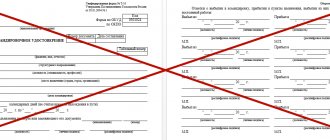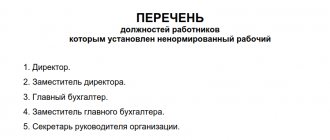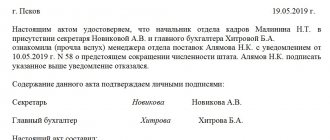In what cases is it necessary
Although the Labor Code of the Russian Federation does not define the concept of “internship,” in other documents it appears quite often and means the preparation and training of an employee. If previously it was possible to do an internship without restrictions, now there are two reasons when preparatory work can be carried out, which means it is necessary to develop and approve a regulation on internship at the workplace (a sample is presented below):
- training is necessary in accordance with legislative standards: training and knowledge testing are required for persons who will work in harmful and dangerous conditions (Article 255 of the Labor Code of the Russian Federation), when working at height (clause 14 of the Order of the Ministry of Labor of the Russian Federation dated March 28, 2014 No. 155n );
- drivers and electrical workers who have had a break in work for more than 1 year should be trained (clause 13 of the Order of the Ministry of Transport of Russia dated March 11, 2016 No. 59, clause 1.4.8 of the Order of the Ministry of Energy of Russia dated January 13, 2003 No. 6);
- such an obligation is also provided for persons who want to work as lawyers or notaries (Article 28 of the Law on Advocacy, Article 19 of the Fundamentals of the Legislation of the Russian Federation on Notaries);
General information
The entire internship process is regulated by the organization’s internal documentation, namely, the Internship Regulations. As a general rule, employers who wish to invest in their staff should take the drafting of this provision with great care.
As fundamental statements in this act, it is necessary to display points that will allow achieving the set goals of personnel management. The most important of them:
- Conducting a selection of the best applicants for available positions.
- Subsequent measures for specialists to master working conditions.
- Development of self-improvement skills among employees.
- Actions aimed at solving the problem with staff turnover.
- Retaining the best specialists in the company.
Also, the Internship Regulations should contain points that are decisive for organizational issues:
- Set internship periods for specific positions.
- Regulate wages for interns.
- Set the load for beginners.
- Implement a plan to teach the necessary skills.
- Regulate the criteria for selecting mentors and decide the amount of their remuneration.
- Establish criteria according to which a decision will be made to accept an intern for permanent employment.
How to draw up a regulation on an internship at an enterprise: sample and rules for drafting
This document does not have a single form that would be recommended by officials, but there are certain requirements for it:
- The regulations include information: about the organization of the process - timing, order, location, to whom it applies;
- about the responsibilities and rights of mentors and trainees;
- about the procedure for taking tests;
- on registration of test results;
Regulations on internship for newly hired employees, sample
Internship Regulations
I approve __________________________________________________________ (organizational and legal form, name of organization) __________________________________________________________ (full name, signature, position of the person approving the position)
“__”___________ ____ Mr. M.P.
Internship Regulations
General provisions
1.1.
This regulation (hereinafter referred to as the “Regulations”) has been developed in accordance with ____________________________________________________________ (indicate the necessary legislative acts, other regulations) in order to organize a proper internship _________________________________ (indicate for whom the internship is being conducted) (hereinafter referred to as the “Interns”) ________________________________________________, ( indicate the name of the organization) (hereinafter referred to as the “Organization”), as well as meeting the needs of Trainees for professional development. 1.2. The internship is part of the trainee development program, annually approved by decision of the Organization’s management, the main principles of which are systematic, scientific, promising, focused on the development of trainees as individuals, individualization, and a combination of internship with self-education. 1.3. Internships for trainees are carried out __________________________ __________________________________________________________________________. (indicate during what period and for whom the internship is being conducted) 1.4. The basis for sending Trainees to an internship are: _________________________.
1.5. General management of the process of organizing internships is carried out by _________________________.
1.6. The internship is free of charge.
1.7. All persons undergoing internship at the Organization must be familiar with these Regulations.
Goals and objectives of the internship
2.1.
The main purpose of internships is for trainees to master new methods, technologies and elements of professional activity, to increase the level of theoretical and practical knowledge in the direction of __________________ (indicate the type of _____________ regarding the specialty and qualifications for _______________ activities) 2.2. Internships for Trainees are carried out in the form of _________________________, lasting up to _______________.
2.3. The duration of the internship is established by the Organization in agreement with the organization where the internship is conducted, based on its goals and content.
Contents of the internship
3.1. The internship program may include:
3.1.1. Independent theoretical training.
3.1.2. Acquisition of professional and organizational skills.
3.1.3. Study of regulatory documents and educational and methodological literature on the topic of internship.
3.1.4. Performing the functional duties of officials (as an interim or backup).
3.1.5. ________________________________________________________.
Internship supervisor
4.1.
The internship supervisor can be _________________________ __________________________________________________________________________. (indicate the necessary requirements for the internship supervisor) 4.2. The internship supervisor is appointed by the head of the Organization.
4.3. During the internship period, the Interns may be assigned another Internship Supervisor.
4.4. Internship supervisor:
4.4.1. Introduces Trainees to their rights and responsibilities, the Charter of the Organization, as well as _________________________.
4.4.2. Gives trainees instructions in accordance with the internship plan.
4.4.3. Monitors the activities of Trainees.
4.5. Controversial issues and claims arising between the Internship Director and the Interns are considered by the head of the Organization.
Organization and completion of an internship
5.1. The internship is carried out in ____________________ in the direction of the Organization.
5.2. The head of the Organization submits an application for organizing an internship indicating the last names, first names, patronymics, position of the Interns and the expected start date of the internship.
5.3. The internship is carried out according to individual training programs developed and approved by the Organization, in agreement with the head of the Organization where the internship is taking place.
5.4. Registration of the internship is carried out by order of the Organization on temporary transfer to another job based on the personal applications of the Interns.
5.5. Trainees are familiarized with the order and program of the upcoming internship by ____________________ no later than _____ days before the start of the internship.
5.6. The internship includes the following stages:
5.6.1. Studying the internship program.
5.6.2. Acquisition of theoretical knowledge and practical skills within the time frame provided for by the internship program.
5.6.3. Presentation of a report on the results of the internship.
5.6.4. Interview to defend acquired knowledge and skills.
5.7. A commission is created to organize an interview to defend the acquired knowledge and skills. The commission includes: _________________________.
5.8. Based on the results of the interview, the commission draws up a conclusion and sends its recommendations to the head of the Organization on _________________________.
Rights and responsibilities of Trainees
6.1. Trainees are required to:
6.1.1. Avoid violations of the current legislation of the Russian Federation.
6.1.2. Comply with these Regulations, as well as _________________________.
6.1.3. Carry out instructions from the Internship Director.
6.1.4. Submit a report on the completion of the internship plan based on the results of the internship plan.
6.2. Trainees have the right:
6.2.1. Get acquainted with the documents necessary for your internship.
6.2.2. Stop your internship at any time.
6.3. The Trainee shall notify the Internship Director of his decision to terminate further internship at least _______________ before the date of termination of his internship.
6.4. Failure to comply or improper fulfillment of this Regulation by Trainees is grounds for early termination of the internship.
Internship report
7.1. Based on the results of completing the internship plan, Interns prepare a report on the completion of the internship, which indicates:
7.1.1. Last name, first name and patronymic of the Trainee.
7.1.2. Last name, first name and patronymic of the internship supervisor.
7.1.3. Name of the Organization conducting the internship.
7.1.4. Start and end dates of the internship plan.
7.1.5. List of work performed by the Trainee.
7.1.6. Other information at the discretion of the Trainee.
7.2. The internship report is signed by the Intern, the Internship Supervisor and the head of the Organization.
7.3. The head of the Organization has the right to organize a verification of the information specified in the report.
7.4. The internship report prepared by the Intern is accompanied by a conclusion from the Internship Supervisor, which contains the following information:
7.4.1. Professional qualities of the Trainee.
7.4.2. Results of the internship.
7.4.3. Acquired work skills of the Trainee.
7.4.4. Other information about the activities of the Intern at the discretion of the Internship Director.
Final provisions
8.1. These Regulations come into force from the moment of its approval by the head of the Organization.
8.2.
All changes and additions to these Regulations are valid only from the moment of their approval by the head of the Organization. Head of the structural unit ______________________________ _______________ (full name) (signature) “__”___________ ____ Agreed by: _______________________________________________________ (official with whom the position is agreed upon) ______________________________ _______________ (full name) (signature) “__ "___________ ____ Head of the Legal Department ______________________ _______________ (full name) (signature) "__"___________ ____
Fine if you don’t train employees on the job
Some companies skimp on employee training and ignore training sessions. However, allowing an untrained employee to work may result in penalties. In accordance with Part 3 of Art. 5.27.1 of the Code of Administrative Offenses of the Russian Federation, officials and individual entrepreneurs can be fined 15,000-20,000 rubles, and organizations - 110,000-130,000 rubles. In case of repeated violation, the maximum fines increase for officials to 40,000 rubles, and for legal entities - to 200,000 rubles.
By a court decision, managers can also be disqualified for up to 3 years, and individual entrepreneurs and organizations can be closed for up to 90 days (Part 5 of Article 5.27.1 of the Code of Administrative Offenses of the Russian Federation).
Why is it necessary and is it possible not to carry out
Internship involves a process during which a new specialist acquires the skills and knowledge necessary for him to perform his job duties efficiently.
Legislative acts regulate this process only from the point of view of labor protection. This includes learning safe work practices that will keep you and your colleagues alive and healthy.
Currently, internships are most often used for graduates of higher education institutions. This process takes place at the place of first employment. Such a beginner falls under the guidance of an experienced specialist.
If an enterprise often uses internships for employees, then it would be logical to develop an internal regulatory document regulating this process.
This provision is beneficial for both the employer and the employee. For the first one, it will help to find out what the new subordinate is like and whether it is worth hiring him for a permanent job. The second one will be able to form an opinion about the company in which he will have to work and perform certain tasks. This is a great opportunity for an employee to demonstrate their abilities and gain new knowledge.
The internship process is only mandatory for employees working in hazardous conditions and when required by company regulations. As an example, consider public transport drivers and metallurgists; they simply cannot do it without undergoing an internship.
Since 2015, the amount of fines has increased significantly and amounts to 25,000 rubles for the manager and 130,000 rubles for the company. These are very serious amounts that are not worth canceling the internship.
If there is no hazardous production, then the internship is an internal matter of the organization.
According to the legislation of the Russian Federation, a specialist who has worked for more than three years in a given position can be exempted from internship, provided that he is transferred to another workshop with the same equipment.
This action can be carried out by the heads of workshops or sections. Therefore, if a specialist worked in an organization for many years, after which he came to get a job in the company, then he will need to undergo an internship. With this development of events, he can complete the minimum established period (two work shifts). To obtain permission to work, a specialist must read the instructions and sign the safety log.
Why and when do you need an internship?
From the contents of Art.
225, 212 of the Labor Code of the Russian Federation, it is clear that on-the-job training is needed to, under the guidance of an experienced mentor, give the employee the necessary practical knowledge and skills for further independent work. Especially for work in compliance with occupational health and safety standards. Internship should not be confused with:
- with apprenticeship;
- with a probationary period;
- with student internship.
Find out more about a student’s internship in the article “How to write a reference for a student from an internship?” .
The order for an internship always follows the order for employment, and the internship time is counted towards the length of service. The trainee's working time is reflected in the time sheets and work schedules of the unit and is paid without fail in the amount established by the employment contract.
Internship is a form of fulfilling legal requirements for labor protection and safety. Therefore, the more difficult the working conditions, the higher the responsibility for its results, the greater the need for an internship.
Internship is required in professions related to:
- with servicing people using vehicles;
- using sophisticated equipment and complex production processes, when there is an increased risk for both the employee and others;
- working with dangerous objects and substances;
- with serving people in additionally regulated areas: public catering, education, medicine, etc.
Read about additional regulation in the field of public catering in the material “Features of using UTII for cafes and restaurants .
How to apply for an internship
When forming the staffing table, the employer must draw up a list of professions, the performance of duties for which requires preliminary internship. His next step will be to develop the appropriate Regulations, which must include the main aspects of theoretical and practical training.
For each specialty, the duration of the internship and the procedure for remuneration of a person during this period should be established. Separate sections display the rights and responsibilities of the trainee and his supervisor. If the employer believes that the responsible person is entitled to an increase in the basic salary for conducting training, then this should be provided for in the document. The Regulations should also indicate the regulations for the procedure for admission to independent work. It must display a list of documents used to formalize the procedure, as well as their form and order of preparation.








